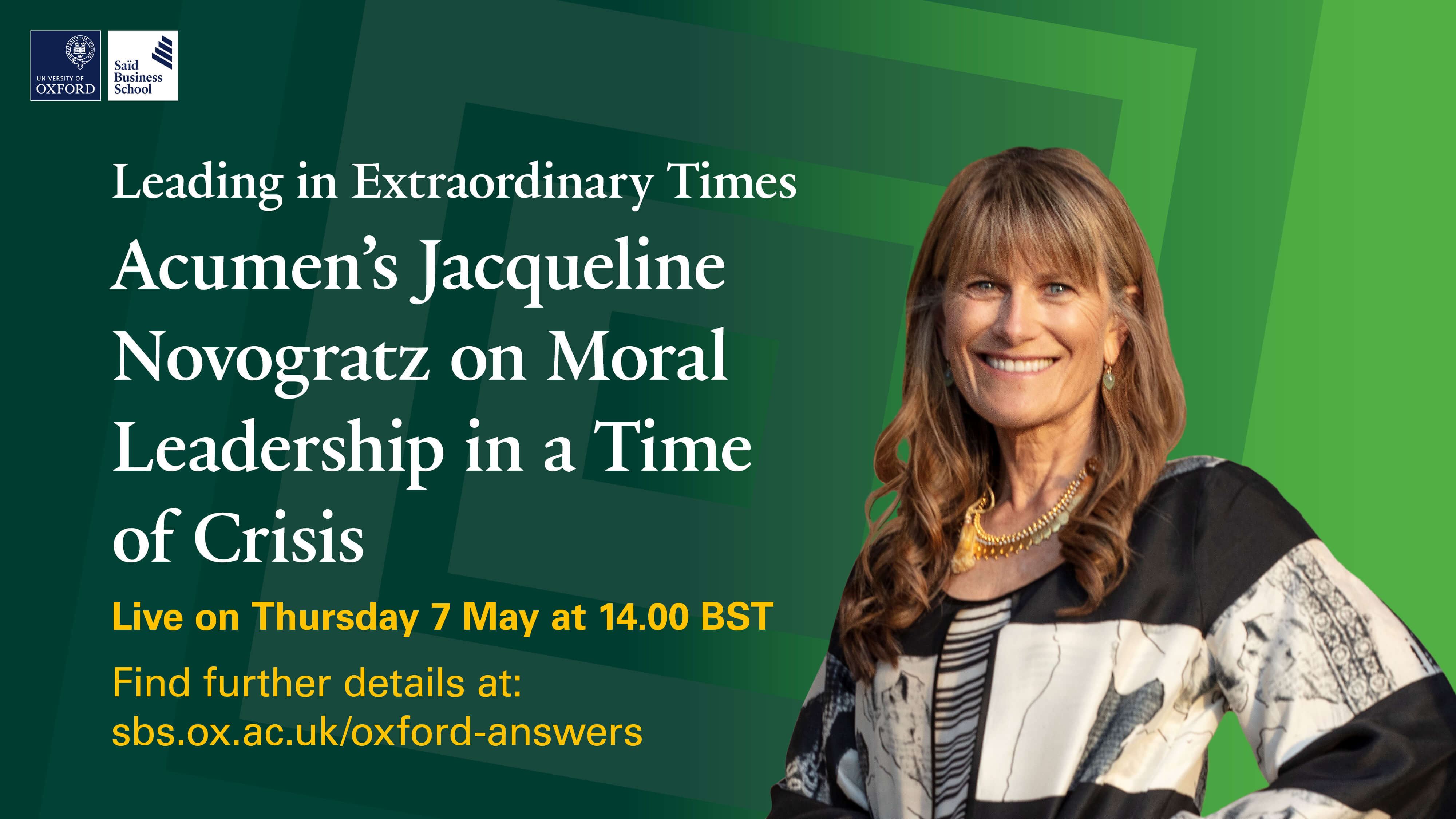Manifesto for a moral revolution

Dean Peter Tufano had a conversation with Jacqueline Novogratz about her book the Manifesto for a Moral Revolution and how we might use this moment of uncertainty to enact a moral revolution – one that asks us to move from a system that puts profit at the centre to one that insists on humanity and the earth at the centre.
Summary
A former Wall Street banker who founded a non-profit, global impact investment fund to help tackle global poverty said 'now is the time' to implement a new moral framework to underpin business activity.
Jacqueline Novogratz founded Acumen and developed the concept of 'Patient Capital' – attracting investors prepared to accept higher risk, lower returns, and longer time horizons – to support entrepreneurs with sustainable solutions to poverty. Since 2001, Acumen and its investments have brought critical services like healthcare, education and clean energy to hundreds of millions of low-income people. Acumen has also supported hundreds of Fellows and launched Acumen Academy, launched several for-profit impact funds, and spun off 60 Decibels, a social enterprise founded on the principle that serving all stakeholders is as important as enriching shareholders.
Now a member of Saïd Business School's Global Leadership Council, and a celebrated author, Jacqueline discussed her life, work, and themes from her new book, Manifesto for a Moral Revolution: Practices to Build a Better World, with Peter Tufano, Dean of Saïd Business School. The event was part of the Leadership in Extraordinary Times series.
Novogratz, who has built businesses within developing countries, said that creating genuine trading opportunities enabled more trusting relationships than simply donating aid. She added that to tackle short-term thinking in the financial system, Environmental, Social and Governance (ESG) criteria should be measured as rigorously as profit and loss, and business should celebrate those innovative models which promote a 'greater good.'
The panel also discussed the need for leaders to have strong character, morals, and emotional intelligence (EQ); and that Covid-19 has highlighted the need for a new, moral framework to tackle inter-connected crises, and societal inequalities.




